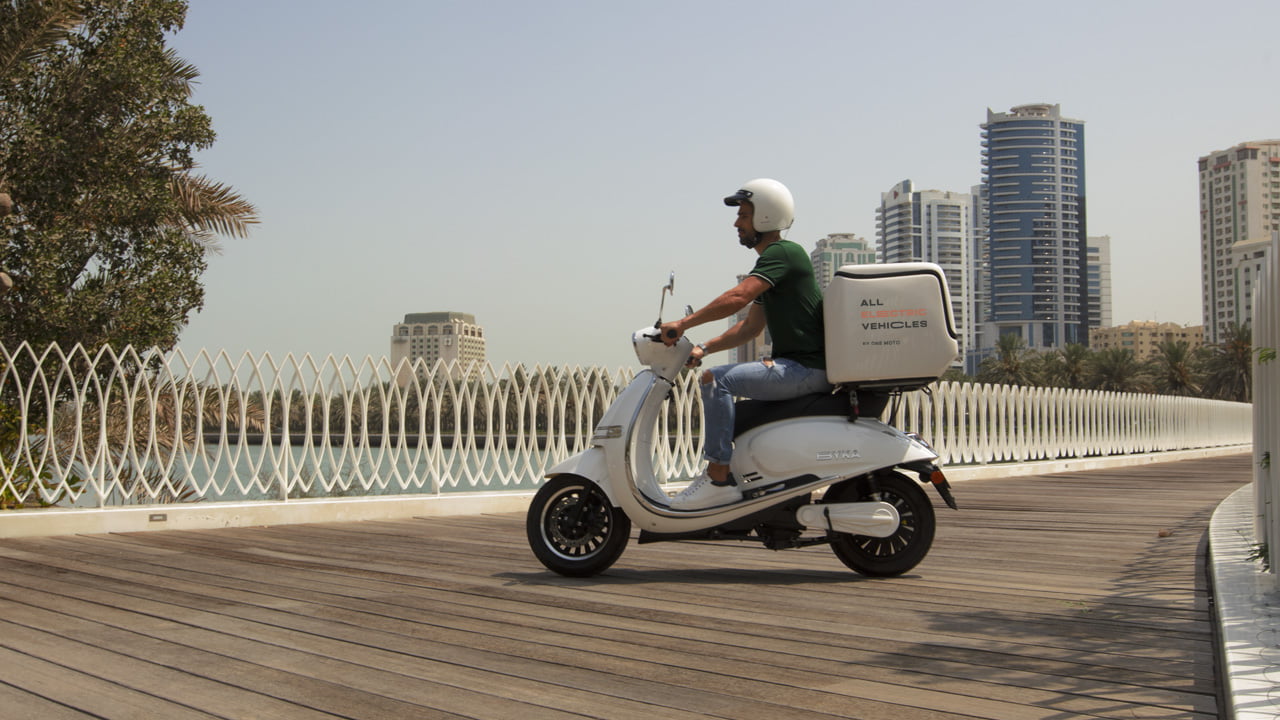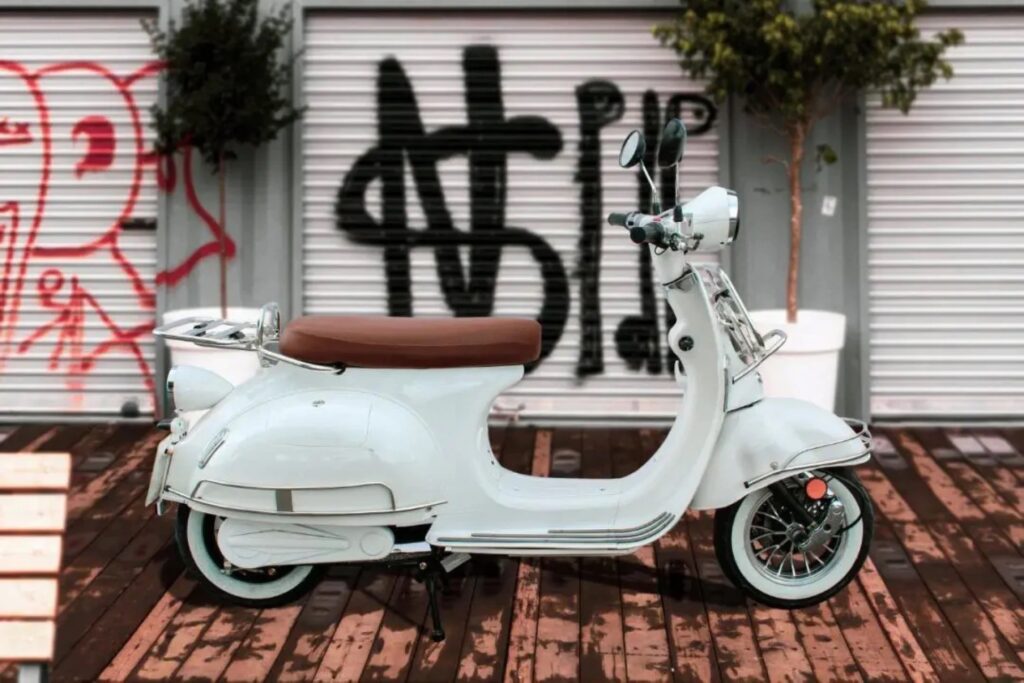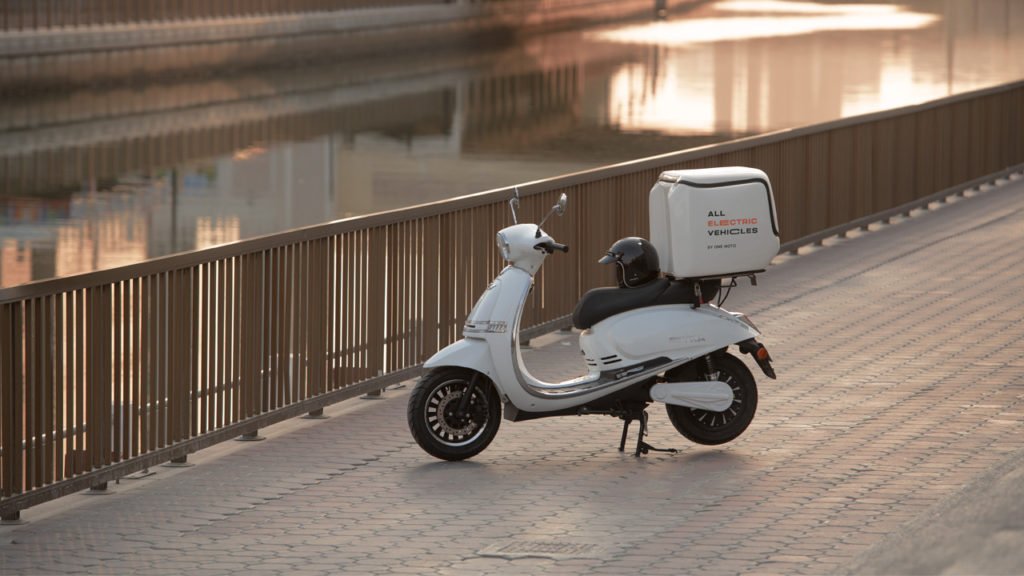UAE ELECTRIC MOBILITY COMPANY ONE MOTO WHO HAVE A CLEAR FOCUS ON THE LAST-MILE SECTOR AND HAVE BEEN OFFERING SOLUTIONS TO THE DELIVERY SECTOR INTERNATIONALLY, REACHING OUT TO HELP PUT AN END TO THE DELIVERY RIDER SUFFERING, INCREASING THE PROFITABILITY OF ALL STAKEHOLDERS BY OFFERING A POSITIVE SOLUTION TO THE GROWING PROBLEM.
Delivery companies in the UAE are once again facing scrutiny and this time with two ‘unofficial’ strikes in as many weeks. This uprising from the gig economy operating here is the final straw and potential catalyst to bring change, we are not suggesting this is the right approach in the UAE, however, the problem has escalated to a climax and change is imminent.
Following the strike by Talabat riders earlier this week, we heard from 3rd Party Logistics (3PL) customers of ONE MOTO that when some of the riders entered an eatery to collect their order, the riders tyres were being deflated by other riders, to encourage the unity of the strike they had committed to. This is not the right approach, yet not uncommon.
Over the years we’ve been speaking to various stakeholders of the industry operators, outlets, 3PL, government and riders, we are in an informed position to offer a solution, but it will take commitment – navigating the complexities of various aggregators operations is a difficult task.
First though we should pre-frame the problems from the six stakeholders:
Riders – long hours, high working pressure, inconsistent and low pay, safety, additional fees, rising fuel costs, mental health and health related issues on their body (neck, back and wrist pains).
Aggregators – sector competition, multiple suppliers, commissions pressure, performance metrics, service quality, customer expectations, increasing market share, reducing delivery times and the associated costs of delivery.
3PL – rider uptime, pay, delivery efficiency, cost reduction, visas, insurance, volume demand cycles and the HR that surrounds the manpower.
Restaurant Operators – Contested high commissions, low and inconsistent service quality, customers complaints, delivery quality and times, low profit margins and of course dark kitchen competition.
Government – Public pressure to review private sector policies, increasing safety, no or fragmented data to make informed decisions, high accident rates, speed restrictions and monitoring compliance of imposed new regulations.
Public/Customers – vast choice of options, fast delivery time expectations, ease of ordering, higher disposable income, delivery ordering habits, lack of awareness of the last-mile industry.
To tackle these issues independently would void a positive outcome, yet demonstrating how interconnected the solutions are, becomes a lightbulb moment – with a few more benefits hidden within, we’ll explain.
The solutions we are seeking:
Rider welfare – increasing pay, with globally paritable working hours, reducing working pressure, with favourable pay, needing to feel safe, heard, respected, not paying ancillary fuel costs or repayment of health insurance, visas. Above all else, respected for the job and service they offer.
Aggregators – provide a great and consistent service to customers, increasing market share upon reputation and optimising delivery times and costs.
3PL – providing riders and vehicles to increase the size of the fleets and market share whilst reducing costs.
Restaurant Operators – Reduced or capped commissions, a better delivery service than if provided in-house and a regulated delivery sector.
Government – Intelligent and factual data to make decisions, reducing road accident numbers and monitoring compliance new regulations.
Public/Customers – options, fast delivery times.
To build a solution for the industry has taken the ONE MOTO team several years of research, customer data, government insights and building solid relations with operators and riders.
“It’s a tremendous shame this unrest has availed itself. The decision by some brave individuals has resulted in a collective voice to bring change. It was inevitable. The voice of the delivery sector becomes a choir with all the stakeholders involved, there is a place for everyone to play a positive role and a positive recalibration is due.”
ADAM RIDGWAY, CEO, ONE MOTO
The solution as mentioned isn’t as clear cut and immediate but could be within as little as 60 days. Addressing the issues head on, here’s how:
Riders
- Eliminate fuel costs and reduce downtime
- No delivery volume bonus’
- Fixed salaries
Aggregators
- Use marketing strength to drive sales and only offer delivery
- Own the vehicles (assets)
- Lease-to-own back to the riders
- Reduce 3PL dependency
- Increase bottom line profits
- Source from reputable manpower companies
3PL
- Lease-to-own back to the riders
- Offer visas, healthcare, insurance without rider repayment
- Switch to an electric vehicle fleet – reducing costs further
- Customer pay a higher fixed fee per delivery
Restaurant operators
- Consider owning and operating your own fleet
- Use aggregators to drive sales, but not fulfil deliveries
- Leveraging the dependency and allowing a negotiated commission structure
Government
- Mandate telemetry which offers the required data for policy revisions.
- Incentivise an electric delivery fleet
- Regulate 3PL operators supplying the market
Public/Customers
- Stop considering 10-15 minute deliveries.
- Tell the delivery companies “it’s OK if I wait an extra few minutes, I want the riders to get here safely. You don’t need to market such short delivery times. I choose you because I like you.”
How are these solutions possible and why haven’t they been implemented already?
It is a result of the surge in the delivery wants from customers, a market opportunity and offering a solution from an identified problem, and these opportunities saw a boom in the last-mile sector. If a business is built on responding to need, the consideration of evolution naturally wouldn’t be there. However, we are all able as stakeholders to navigate a different approach.
“Are we failing as a human race if we ‘demand’ 10 minute deliveries? Do we really need them. Facing the issues, is this truly convenient?.”
ADAM RIDGWAY, CEO, ONE MOTO.
Here is a proposed solution:
Operating an electric delivery fleet helps address many of the above-mentioned problems, I’ll demonstrate below.
SWITCHING TO AN EV FLEET
RIDERS
- No fuel costs = additional AED 650 per month
- Bonus’ based on safe riding and green kms travelled
AGGREGATORS
- Own the vehicles (assets) = CapEx repayment in 3-4 months
- Lease-to-own back to the riders = offering increased value to riders
- Lease direct from the EV manufacturer
- Optimised route planning and data through built in telemetry
3PL
- Own or Lease EVs reduces OpEx by up to 74%
- Minimal servicing and maintenance
- Less health issues (due to better ergonomics)
- Drastically reduced fatalities and accidents
RESTAURANT OPERATORS
- Managed operational costs (if purchasing the EV fleet)
- ROI on vehicles in 5-7 months (based on delivery radius)
- Match the sustainable values of your customers
GOVERNMENT
- Collect real-time accurate data through pre-installed telemetry.
- Enhance and action towards the UAEs green agenda
- Positively reward the sustainable uptake of riders and companies
PUBLIC/CUSTOMERS
- You will receive your deliveries sustainably.
- You’ll know the riders are safer and healthier.
- You may even see a reduced cost of delivery (encouraging you to tip more)
In all the above I opted to avoid clouding the solution with the blanket of sustainability, but a switch to an electric vehicle delivery network, is a dramatic bonus for the environment, and one that is more devastating than you realise.
ONE MOTO HQ conducted a survey in April to understand the issues of the industry and the sustainable values of customers and indeed how much they would be prepared to pay additional for a sustainable delivery solution, click here to read the results.
I’ll offer you some statistics on the harmful environmental impact petrol delivery motorcycles have to our environment:
- 15,000 delivery bikes on the roads of Dubai each day.
- Producing 42,000 tonnes of Co2 each year.
- Killing 49,704 acres of forest each year.
- That’s 202km2 (DXB airport to Jebel Ali)
As air pollution is humanities greatest killer, and twice as deadly as previously reported, shouldn’t we be addressing this a little more? The air quality in the UAE isn’t the best, but we can do something to help ourselves, without it costing us financially or in effort.
There have been some very well written articles over the past three years about the delivery sector and what problems are faced, yet had no voice and no direct solution, until now.
Yes, indeed there will need to be an applied restructure to the industry and possibly the operations of stakeholders, yet we have been in a pivoting mindset for a couple of years, so it’ll be an easier task to solve and you’re not alone, we all have a place in this together.
Articles/Links:
Life of a delivery man – Gulf News
Life of a delivery rider Dubai – The Media Line
Delivery riders stage strike – Reuters
UAE rider claims the strikes aren’t helping – Caterer Middle East



